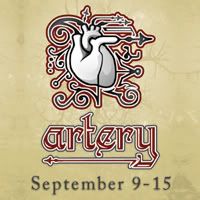theology?
We had a lively discussion last night in our Hi-Riser group on the merits of theology. Now, obviously, the study of God and the knowledge gleaned from Scripture is worthy of our attention and encouraged in the Bible. However, these words from Paul in the first book of Corinthians created some uneasiness in me: "When I came to you, brothers, I did not come with eloquence or superior wisdom as I proclaimed to you the testimony about God. For I resolved to know nothing while I was with you except Jesus Christ and him crucified. I came to you in weakness and fear, and with much trembling. My message and my preaching were not with wise and persuasive words, but with a demonstration of the Spirit's power, so that your faith might not rest on men's wisdom, but on God's power."
The question I have to ask myself is, if "Jesus Christ and him crucified" was all Paul wanted to be about, why then do we have all this other stuff outside of that? I know theology is a man-made system to answer the questions we have about God and it has its value but it seems like it creates more divisions among us than it does unity...even in that passage, Paul notes that "your faith might not rest on men's wisdom, but on God's power." I don't believe we should stop asking questions or pose serious doubts about our faith, but systematic doctrinal analysis can't be the only provision of resolution, right? I can't help but think how this institution of knowledge with its seminaries and professors and colleges and commentaries has become its own entity, seemingly a new religion of sorts; knowledge for the sake of knowledge? How much of theology actually clutter things up rather than clear them up?
The question I have to ask myself is, if "Jesus Christ and him crucified" was all Paul wanted to be about, why then do we have all this other stuff outside of that? I know theology is a man-made system to answer the questions we have about God and it has its value but it seems like it creates more divisions among us than it does unity...even in that passage, Paul notes that "your faith might not rest on men's wisdom, but on God's power." I don't believe we should stop asking questions or pose serious doubts about our faith, but systematic doctrinal analysis can't be the only provision of resolution, right? I can't help but think how this institution of knowledge with its seminaries and professors and colleges and commentaries has become its own entity, seemingly a new religion of sorts; knowledge for the sake of knowledge? How much of theology actually clutter things up rather than clear them up?
Labels: faith




0 Comments:
Post a Comment
<< Home